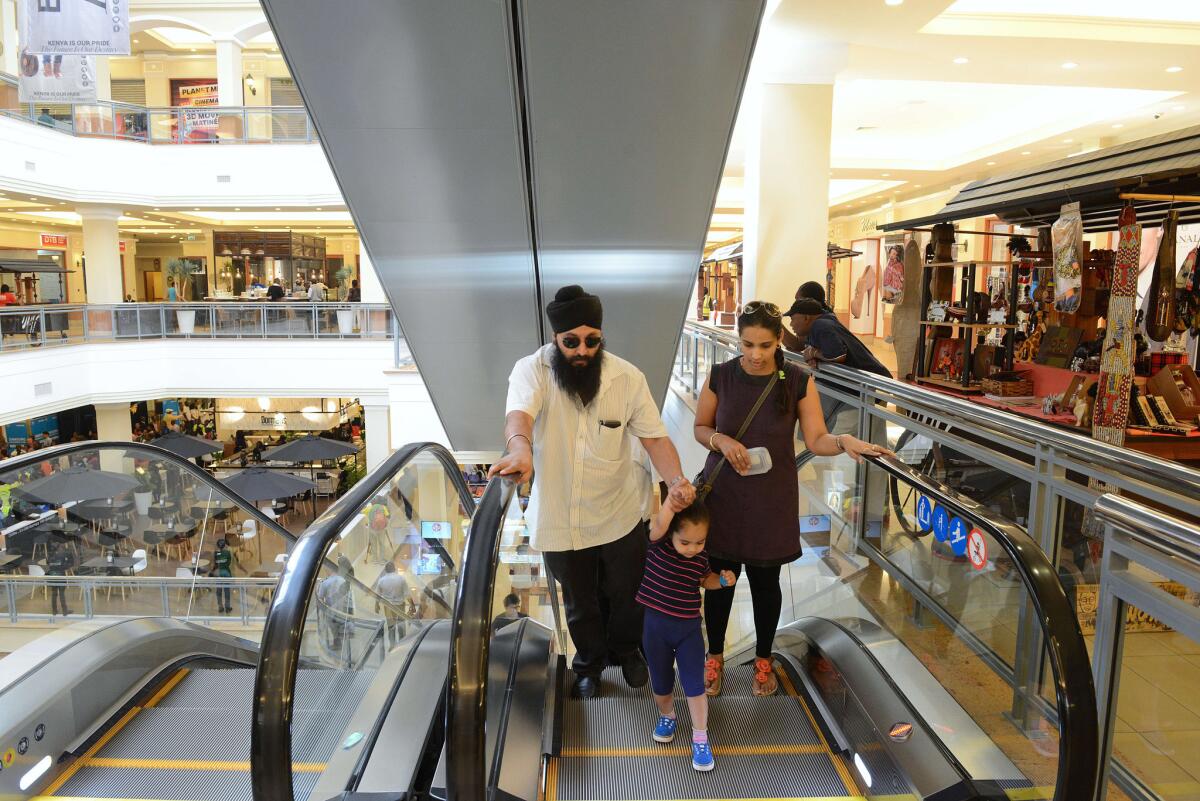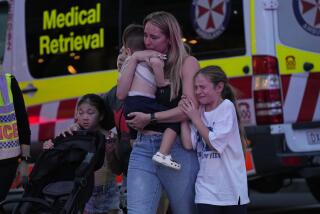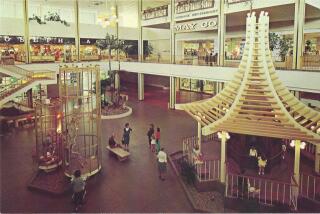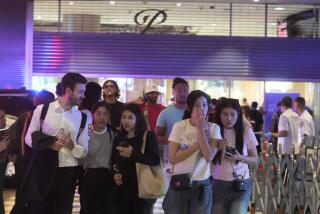Shoppers pour into reopened Kenyan mall 2 years after terrorist attack

Customers shop in the reopened Westgate mall in Nairobi, Kenya.
Reporting from Nairobi, Kenya — It was the site of a mass killing and a national embarrassment. But when Westgate mall reopened here Saturday morning, shoppers and politicians poured through the security scanner into the glittering, light-filled interior in a rare moment of hope and closure.
Ben Mulwa, 34, a survivor of the September 2013 terrorist attack in the Kenyan capital that left at least 67 people dead, was among the first five to escape after hiding in a flower bed as four terrorists walked by him. Their calm, expressionless faces haunt him to this day.
He was one of the first to return Saturday, coming, he said, “to finish that business that brought me to Westgate mall,” a lunch meeting with a friend.
“Today is an inspirational moment for us,” Mulwa said. “Many people didn’t make it, as we did. Today, we are excited because we are back on our feet, and we can convince the world that terrorism is not bringing us down anytime soon.”
The assault was carried out by the four gunmen who passed by Mulwa. The militants, members of the Somali group Shabab, launched a siege that dragged on for days. Initially it was feared that their number might be greater and that dozens of people might be held hostage. The gunmen freed those who could recite a Muslim profession of faith and shot down others, including children.
The attack underscored how terrorists could inflict a devastating toll on a civilian target without suicide vests, explosives or bombs.
Shabab’s attack on a university in the northern Kenya town of Garissa in April used the same template, with a small group of gunmen storming student residences, shooting Christians and even taunting parents and loved ones on their victims’ cellphones. At least 148 died in the assault, which came after authorities failed to heed protests about poor security on the campus.
Westgate mall, once Nairobi’s most elite shopping spot, was closed after the 2013 attack. Its hulking empty frame conveyed not only the country’s security failures in its battle against Shabab but was a grim reminder of other unpleasant moments: police officers looting stores after the gun battles; authorities offering misleading statements — some called them downright lies — during the crisis; the squabbling between branches of the security forces that stymied the response.
Mulwa, a communications consultant, was driving into the mall’s rooftop parking garage when the first shots came. He abandoned his car, blocked from behind, its motor still running.
“The shots went on so intensely that we had to get out of our cars,” he said. “I went to hide in a flower bed on the way to the rooftop. While I was hiding, I saw the terrorists walk through the entrance. They shot at me. I remember the particular shot that grazed my head. The bullet ricocheted off the wall and hit my leg.
“They shot the security guard who was right in front of me. He died in front of me because he was shot in the head.”
The faces of the killers are still locked in Mulwa’s mind.
“Their faces were so cold. They seemed to be enjoying exactly what they were doing. They didn’t seem to be perturbed at all. Their faces, I’ll never forget for the rest of my life.”
Josephine Kinotei, 34, was working at the Healthy U food outlet in the Nakumatt supermarket and was trapped for hours in a washroom before Kenyan forces rescued her and others.
“We were terrified,” she said. “We couldn’t leave because people were still shooting. We started praying and praying. We prayed a lot.”
Kinotei lost several close friends in the attack, and for months was troubled by images of the dead that haunted her dreams. Yet she did not hesitate to return to work Saturday.
“This is my first time to come back here. All we are praying for is peace: peace in this mall and peace in our country.”
Security was heavy at the reopening, with army and police vehicles on site and guards patrolling with hand-held radios. Inside, staff members at a health-food shop held candles. The smell of coffee wafted over the shiny tiles, as customers filed into a ground-floor cafe for lattes and pastries.
The event came less than a week before President Obama’s planned visit to Kenya, when he will underscore American support for the war against Shabab. U.S. drone strikes have killed a series of top Shabab commanders in Somalia.
But Shabab appears to have gained strength within Kenya in the last year, mounting a series of deadly attacks, mainly on the coast and in the northeast.
And despite the heavy protection offered at Westgate on Saturday, security at many malls and other civilian targets remains lax. Early this month, 14 people were slain in the northern town of Mandera.
Security analyst Mwenda Mbijiwe said Kenya still has to learn the lessons of Westgate if it is to prevent similar attacks.
“When they give a bad example, it’s Westgate,” he said. “That’s how embarrassing Westgate has been for our country. Have we learned the lessons? We should ask ourselves the question.”
Mbijiwe said that unless security is improved at the Israeli-owned mall, “there will be another attack here; terrorists are not stupid. They will come to check it out. They will want to put a nail in the coffin. This is an Israeli facility. They will want to shame them.”
But the mall’s management has promised tight security run by I.R.G., an Israeli security company, Reuters news service reported recently.
Inspector General of Police Joseph Boinett strode through the mall Saturday morning, shaking hands with shoppers and greeting passersby.
“I’m glad it’s reopened. It shows we will not be intimidated by these criminals and terrorists. We will fight back. We will lead normal lives.”
Twitter: @robyndixon_LAT
More to Read
Sign up for Essential California
The most important California stories and recommendations in your inbox every morning.
You may occasionally receive promotional content from the Los Angeles Times.










